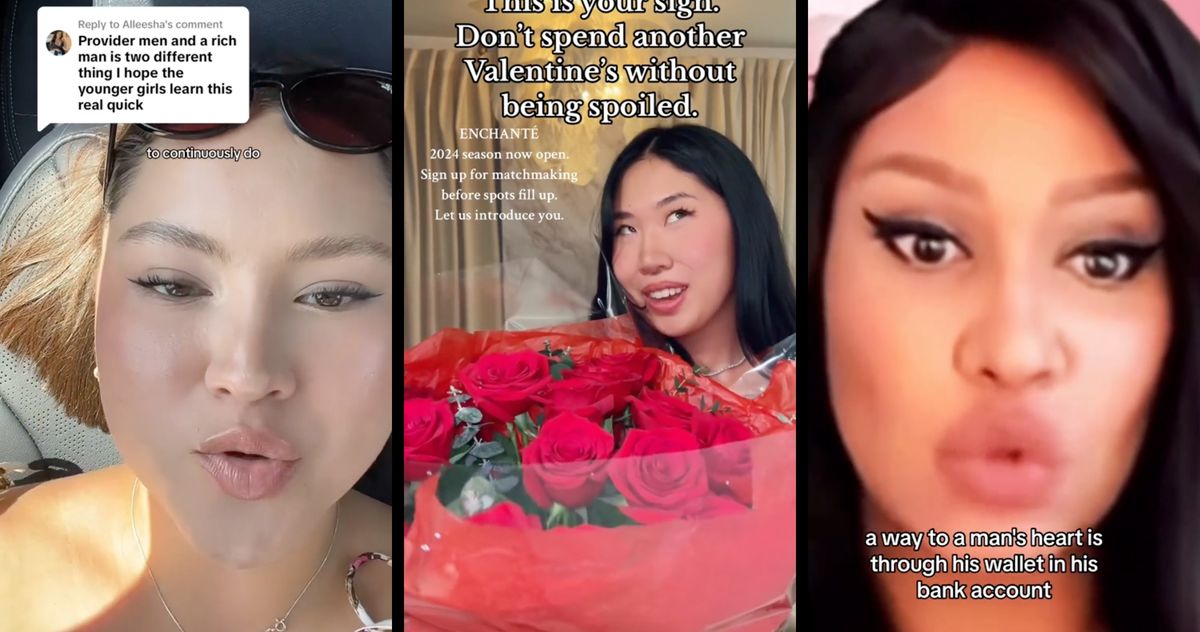How To Marry Rich

🌈 Abstract
The article discusses the rise of "provider man" influencers on social media who encourage women to seek out wealthy partners to achieve a "soft life" of financial security and freedom. It explores the perspectives of several influencers and their followers, examining the motivations, controversies, and realities behind this dating advice.
🙋 Q&A
[01] The Cult of the Provider Man
1. What is the main premise of the "provider man" dating advice being promoted by influencers?
- The advice encourages women to find a man who is willing to financially provide for them, so they can live a more comfortable and carefree "soft life" without having to work or contribute to household expenses.
- Influencers like Karla Elia, Sahar Khorramnezhad, and Leticia Padua (Shera Seven) promote this approach, teaching women how to attract and marry a "high-value" provider man.
2. How do the influencers justify this advice?
- They argue that it allows women to have more freedom and time to focus on personal growth, rather than being burdened by financial responsibilities.
- Some claim it helps balance out the "extra things that women go through in society," like the "pink tax" on products.
- The advice is presented as a pragmatic way for women to achieve financial security and generational wealth.
3. How do some followers respond to this advice?
- Some women, like Katrina, have embraced the approach and now actively seek out men with wealth and status, rather than just romantic compatibility.
- However, others, like Jasmine's conservative friends, are critical of the "sprinkle sprinkle" advice, seeing it as encouraging women to be "whores."
4. What are some of the criticisms or concerns raised about this dating advice?
- It is seen by some as a regressive and sexist approach that reduces women to financial dependents.
- There are questions about whether the influencers' own lives and relationships are as perfect as they present them to be.
- Some followers become obsessed with "disproving" the influencers' claims about their happiness and success.
[02] The Realities of the "Soft Life"
1. How do some women who have tried to live the "soft life" describe their experiences?
- Sahar Khorramnezhad found the idle time and lack of intellectual stimulation during her 8-month break from work to be detrimental to her mental health and depression.
- She ultimately returned to work, specializing in high-net-worth legal matters, as she found the "soft life" unfulfilling.
2. What cautions do the influencers provide about the "provider man" approach?
- Sahar Khorramnezhad warns that there are only so many wealthy men to go around, as the "one percent" is a small group.
- Leticia Padua (Shera Seven) acknowledges that men are "destined to disappoint you," so women should aim to at least walk away with financial security.
3. How do some influencers distance themselves from the more extreme aspects of the "provider man" advice?
- Sarah Allison calls her previous "high-value dating" content "superficial fluff" and now focuses on deeper self-improvement work.
- Tiff Baira and Mimi Shou claim their videos about hunting for rich men were meant to be satirical.
4. What backup plans or alternative paths do the influencers or their followers pursue?
- Karla Elia has returned to school to become a legal translator, in case her "provider man" approach doesn't work out.
- Some followers, like Jasmine, keep their affiliation with the influencers secret from more conservative friends and family.